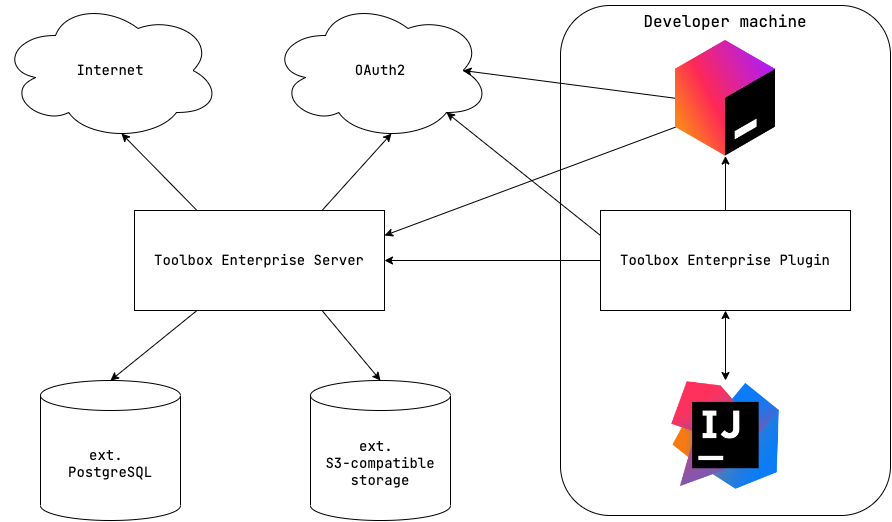Architecture overiview
Toolbox Enterprise comprises the following independent components:

The core component of Toolbox Enterprise is the server installed in your company. Using the Toolbox Enterprise Server, you can manage access rights for users, distribute plugins (including the custom ones), and determine the list of IntelliJ-based IDEs and plugins available to the developers in your company. It also serves as a single-entry point for collecting usage statistics, exceptions, and freezes from the developer machines.
You can administrate the Toolbox Enterprise Server of your company both via the REST API and graphical user interface.
The Toolbox Enterprise Plugin helps implement the Toolbox Enterprise features in JetBrains products. It enables the collection of usage statistics and reporting of UI freezes and exceptions directly to the Toolbox Enterprise Server. The plugin sets up the HTTPS certificates and the IntelliJ plugin repository using the configurations from the Toolbox Enterprise Server.
The plugin is automatically installed and configured in all IntelliJ-based IDEs via the Toolbox App.
The Toolbox App is installed on developer machines and is used for downloading, updating, and configuring IntelliJ-based IDEs. Starting from version 2.2.1, it supports Toolbox Enterprise features. These features are only activated using the client configuration file.
When connected to the Toolbox Enterprise Server, the Toolbox App suggests working in enterprise mode. In this scenario, the Toolbox App serves as an agent on every developer machine and allows you to manage and install IDEs, distribute configuration files and plugins.
The Toolbox App and Toolbox Enterprise Plugin for IntelliJ-based IDEs use authentication via the company’s OAuth2 provider in order to receive and deliver user-specific settings (for details, see Configure profiles and IDE settings).